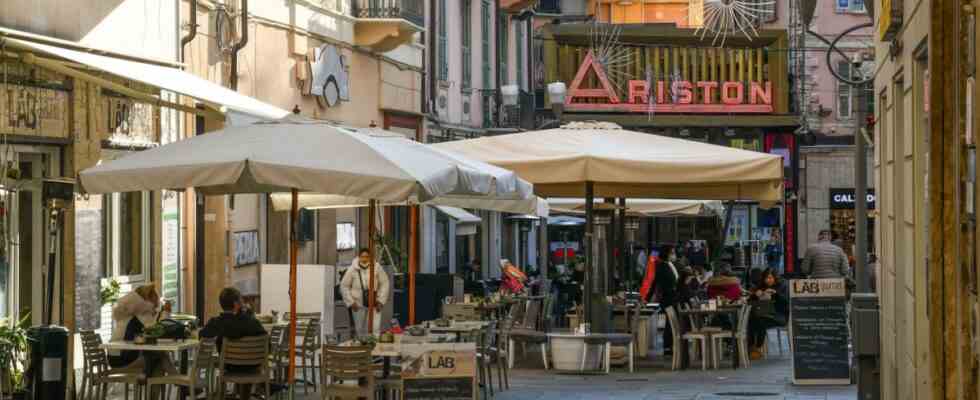Does it go together: little dances, little songs, sequins and the war in Ukraine? Before the music festival of Sanremo, the big fair of the Canzone Italiana, there is a lot of discussion in Italy about a program item on the final evening, Saturday, February 11th. Shortly after midnight and before the winner of 2023 is announced, Volodymyr Zelenskiy will be speaking to the probably twelve or thirteen million Italians. That’s how many tune in on the fifth day, the day of the finale. Two minutes from Kyiv, pre-recorded. Apparently, the state broadcaster Rai Uno is still open as to when exactly it wants to place the video message. It has to fit somehow, they say. But does that ever fit?
Opinions differ, although the performance is not that unusual: Selensky has already appeared at the Venice and Cannes film festivals and recently at the Golden Globes. But Sanremo?
A political “front”, as some Italian newspapers call it, has formed against Zelenskiy’s appearance. The most prominent critic of all is Matteo Salvini, Italy’s right-wing populist deputy prime minister. “Zelenskij?” he said in a television show on La 7 with an ironic undertone: “I don’t know how he sings, but I have other preferences.” He probably meant musical ones. Sanremo simply has to remain Sanremo, he added, a “moment with war and dead people” doesn’t fit into the festival. You have to know that Salvini used to like to appear in public with T-shirts on which Vladimir Putin’s head was printed. He’d always been a fan. Now his party, the Lega, always votes in parliament to support Ukraine. Only Sanremo is apparently a bit very delicate.
The music competition in the Ligurian city of Sanremo was created in 1951. In 1984 a still very young Eros Ramazzotti performed here.
(Photo: imago stock/imago/Leemage)
But there is also resistance to Selensky’s clip from the far left. A group of intellectuals led by television man Carlo Freccero and cartoonist Vauro Senesi have drawn up a manifesto. It states that the “head of state of one of the two countries involved in the bloody war in Donbass” cannot have a say at the festival. It almost sounds as if everything would be okay if the head of state of the other country, ie Putin, would also get his two minutes. On Rai Uno, just before the finalissima, cha-cha-cha.
The station sticks to its plan. And so the signers of the manifesto now intend to protest on the final evening – in front of the Teatro Ariston in Sanremo.
It’s the same as always with this 73rd edition of the festival: when February approaches and with it the country’s most important folk event, the machine of polemics starts to work, as if triggered by a wondrous director’s hand. And then runs for weeks. The discussions also drag the hesitant in front of the television, who doesn’t want to be able to have a say? You sometimes argue about music, because tastes are known to differ. But more often there are arguments about politics, big and small, depending on what the organizers and moderators of the festival raise with specifically invited guests and a lot of educational sense: sexism, violence against women, racism, important social issues.
“Sanremo” is more than just a big, incredibly long-lived, glittering music show with sequins, lots of bare skin and more tattoos every year. You never reach more people in Italy than during the endlessly long festival week, sometimes the audience exceeds sixty percent. It’s a fantastic stage for singers and politicians. And that’s why Volodymyr Zelensky asked Rai Uno if he could perhaps speak briefly to Italy, two minutes. Fits quite well.

